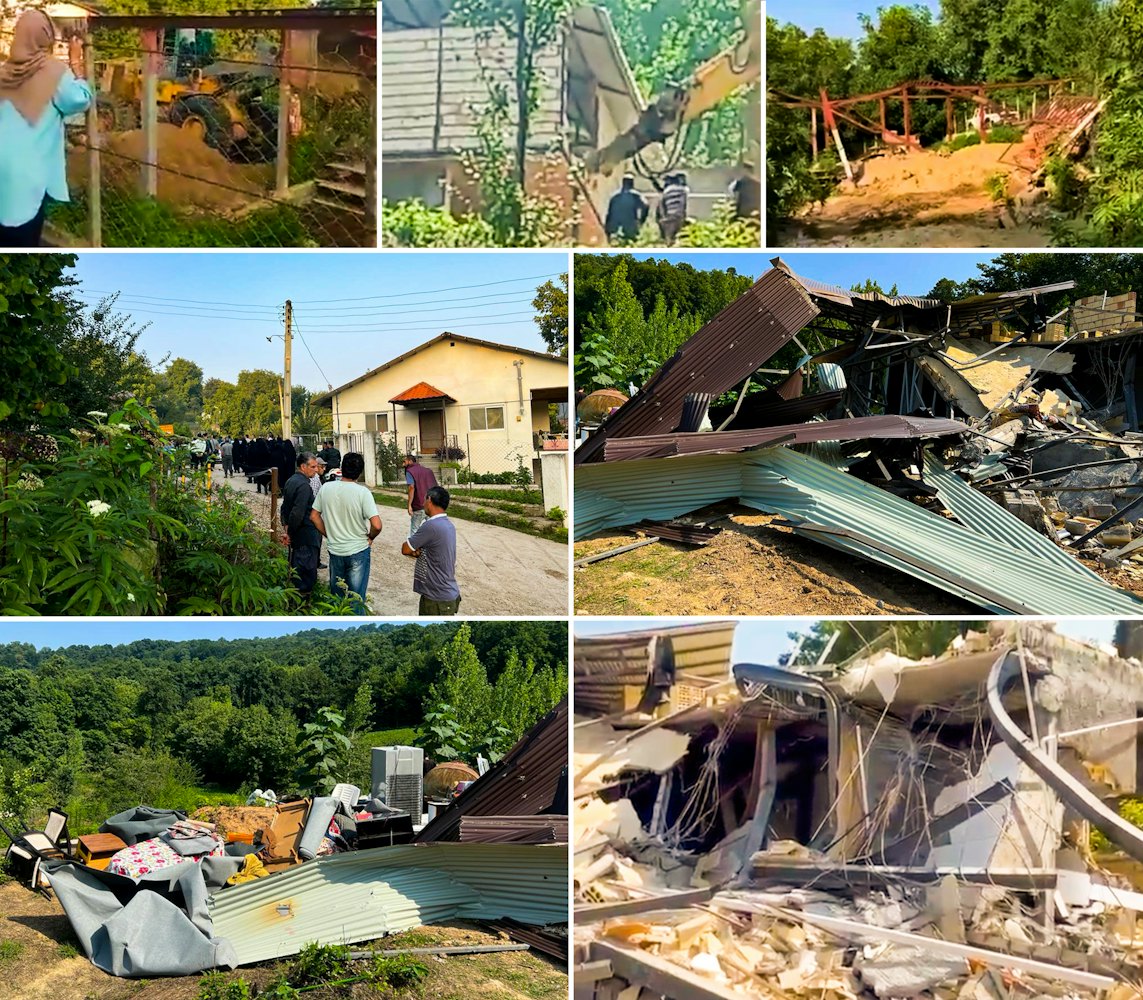BIC GENEVA — Some 200 Iranian government agents destroyed six homes and confiscated over 20 hectares of land belonging to Bahá’ís in the village of Roushankouh, in Mazandaran province, the News Service has learned.
The government agents used pepper spray to disperse people and gunshots were heard during the operation.
This latest move follows weeks of intensifying persecution of the Baháʼís: over 100 have been either raided or arrested in recent days and dozens others have been targeted since June.
“Given the Iranian government policy documents about persecuting Bahá’ís, the international community must act immediately before it is too late,” said Diane Ala’i, representative of the Bahá’í International Community (BIC) to the United Nations in Geneva.

Background
The Bahá’í Faith was born in 19th century Persia with the appearance of two prophetic figures—the Báb and Bahá’u’lláh. The Báb’s mission was to prepare the way for the coming of a Promised One foretold in all the world’s religions.
Among those teachings are the oneness of the entire human race; the independent search after truth; the abolition of all forms of prejudice; the harmony which must exist between religion and science; and the equality of men and women. For more information about the Bahá’í Faith visit the official website.
The Early Period
The teachings of the Báb — and their popular appeal — were seen by Iran’s religious establishment and the Qajar Kings as a threat to their power and authority. Thousands of early followers of the Báb were killed at the urging of religious leaders, and the Báb was executed by the government in 1850.
The Iranian religious orthodoxy subsequently responded to the message of Bahá’u’lláh, as it spread within and outside of Iran, with a renewed determination to extinguish the new religion and force its followers back to Islam. Bahá’u’lláh was exiled, sent to the prison city of Akka in what was then Ottoman Palestine, while His followers in Iran continued to face successive outbreaks of persecution. In 1903, for example, 101 Bahá’ís were killed in the city of Yazd after the populace was incited by hostile mullahs.
During the early years of the Pahlavi dynasty (1925 to 1979), the government formalized a policy of discrimination against the Bahá’ís as a concession to the clergy. Beginning in 1933, Bahá’í literature was banned, Bahá’í marriages were not recognized, and Bahá’ís in public service were demoted or fired. Bahá’í schools – of which there were some 50 in the country and which were open to all irrespective of background – were forced to close.
The persecution of the Bahá’ís intensified significantly since the 1979 Islamic revolution, as a result of official government policy. When the new Republic’s constitution was drawn up in April 1979, certain rights of the Christian, Jewish and Zoroastrian minorities in Iran were specifically mentioned and protected. However, no mention whatsoever was made of the rights of the Bahá’í community, Iran’s largest religious minority.
Under Iran’s Islamic government, this exclusion has come to mean that Bahá’ís enjoy no rights of any sort and that they can be attacked and persecuted with impunity. Courts in the Republic have denied Bahá’ís the right of redress or protection against assault, killings or other forms of persecution — and have ruled that Iranian citizens who kill or injure Bahá’ís are not liable for damages because their victims are “unprotected infidels.”
In this last decade, the persecution of Iranian Bahá’ís is marked by a sustained and concealed effort on all fronts — despite the promises of the new president, Hassan Rouhani, to end religious discrimination. Bahá’ís continue to be regularly arrested, detained, and imprisoned. Young Bahá’ís continue to be denied access to higher education through a variety of ploys. And economic policies target small shops and businesses — one of the few remaining sources of subsistence for Bahá’ís and their families.






